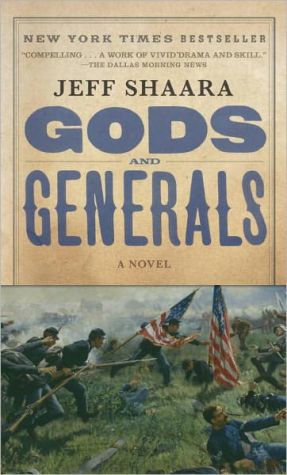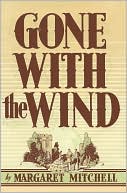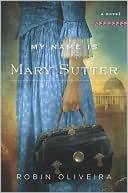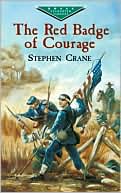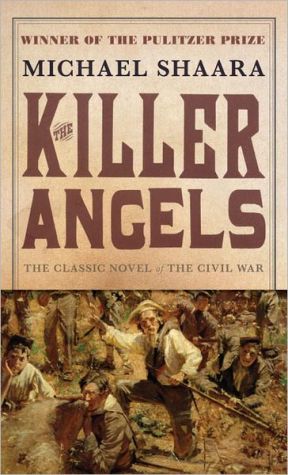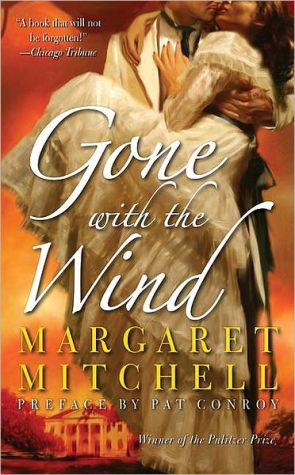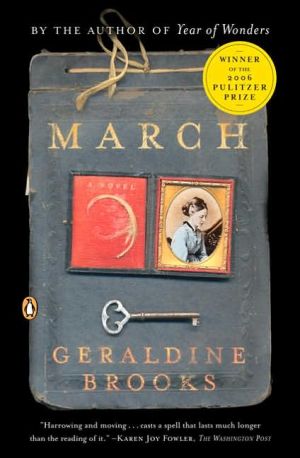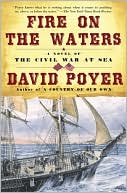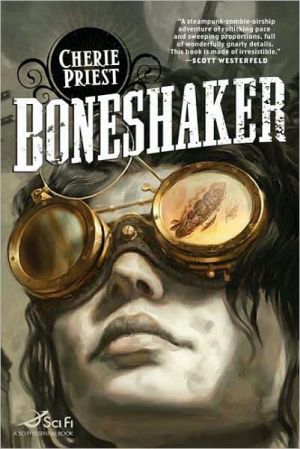Gods and Generals: A Novel of the Civil War
Here is Thomas "Stonewall" Jackson, a hopelessly by-the-book military instructor and devout Christian. His fierce exterior hides a compassionate soul that few - students and soldiers alike - will ever see, and he becomes the greatest commander of the Civil War. We follow Winfield Scott Hancock, a Captain of Quartermasters who is assigned command of a brigade of infantry, quickly establishing himself as one of the finest leaders in the Union army. Then there is Joshua Chamberlain, who gives up...
Search in google:
In this brilliantly written epic novel, Jeff Shaara traces the lives, passions, and careers of the great military leaders from the first gathering clouds of the Civil War. Here is Thomas “Stonewall” Jackson, a hopelessly by-the-book military instructor and devout Christian who becomes the greatest commander of the Civil War; Winfield Scott Hancock, a captain of quartermasters who quickly establishes himself as one of the finest leaders of the Union army; Joshua Chamberlain, who gives up his promising academic career and goes on to become one of the most heroic soldiers in American history; and Robert E. Lee, never believing until too late that a civil war would ever truly come to pass. Profound in its insights into the minds and hearts of those who fought in the war, Gods and Generals creates a vivid portrait of the soldiers, the battlefields, and the tumultuous times that forever shaped the nation.Publishers WeeklyShaara, whose father, Michael Shaara, won the Pulitzer in 1975 for his Civil War saga The Killer Angels, penned this prequel, which spent 14 weeks on PW's bestseller list. (May)
Gods and Generals: Antietam/Sharpsburg\ \ After Lee's victory at Bull Run, he took his men on a march into Maryland, drawing the Union army out of Virginia. But Union commander George McClellan captured Lee's plans; for once in his life he moved quickly to pin the Confederates down in the fields around the town of Sharpsburg, by Antietam Creek.\ \ On September 17, 1862, the two armies clashed in the bloodiest day of the entire war. McClellan launched a series of uncoordinated attacks on Lee's outnumbered army. Joshua Chamberlain served in the Union army's reserve, waiting all day to be ordered into the bloody fight.\ \ \ Excerpt\ They reached a small village, Porterstown, and marched through wide streets, the townspeople standing in doorways, leaning out windows, some waving, others just staring. Farther ahead, on the creek itself, was the Middle Bridge, held by the Confederate division of Daniel Harvey Hill. The rebel forces were dug in, back, away from the creek, and to their front the Federal army was spreading out, into lines of attack, were crossing the creek and preparing for the assault. The battle had begun on the far right, just after dawn, and now, as the sun began to rise up behind them, Chamberlain could hear the steady rumble, and as they moved closer, the sharp sounds of single cannon. He sat high on his horse, moving along with the same slow rhythm of the march, but now the men did not fall out, did not feel the weight of the hot September morning, but stared to the front, marching steadily, closer to the sound of the guns.\ \ He heard the steady clatter of muskets now, still off to the right of the road, to the northwest. The battle isnot in front of us, he thought. Strange that we should move this way...not up there.\ \ In front of them, Chamberlain saw a rise, a long, wide hill, and as they began to move up, he saw guns, rows of black cannon set into shallow, round depressions before the crest of the hill. Just then they began to fire, quick bursts of gray smoke, and a sudden shocking boom that startled him and his horse. He bounced around on the road, had to grab the horse hard to calm him. From over the hill he saw Ames, riding hard, past lines of troops that were moving away now, to the right, toward the sounds of the battle.\ \ Ames reined up his horse, and Chamberlain saw he was sweating. "Colonel, we're here, right here. Keep the men in column lines. Let's move them out into this field. Wait for further orders. We are part of the reserve."\ \ Chamberlain turned, and Ames rode past him, into the columns of men, and gave the command to the bugler. With the signal, the men moved quickly off the road. Then Ames rode up again, toward the front of the column, slowed his horse as he reached Chamberlain, said, "Colonel, keep them tight, keep them ready. I am to survey the field to our front."\ \ Chamberlain watched him ride away, up the long hill, turning his horse to the side behind the rows of black cannon. The guns began to fire again, a loud and thunderous volley, and the hill became a great, thick fog bank.\ \ He stayed on his horse, saw now across the road, on the left, vast numbers of troops, lines disappearing into a distant grove of trees, and the men not moving, keeping their formations. He rode out the other way, to the right, into the grass, saw more troops farther out that way, a great field of blue, waiting. He looked to his own men, saw the companies staying in their formations, coming off the road, and he rode up to the head of one column, saw Captain Spears of Company G, a small, sharp man who had also been a teacher. He had a narrow, thick beard, sat on a horse, watched Chamberlain approach, puffed on a large round pipe.\ \ "Well, Colonel, do you think we will get our chance?"\ \ Chamberlain looked back to the crest of the hill, could still not see through the smoke, and another volley thundered out, shaking the ground, startling his horse again.\ \ "Whoa, easy...We'll see, Captain. Right now we must be ready...be ready to move forward on command!" He felt a little foolish, a vague order, felt again as if he were left out, didn't know what was happening. The battle sounds had continued to the northwest, and he wondered, Are they moving away, around us? He glanced at Spears, said, "I'll be right back...just going up the crest a ways, take a look maybe."\ \ "We're right here, Colonel."\ \ He turned the horse, then decided to dismount instead. This wasn't a parade. He jumped down, felt his belt, his pistol, began to walk toward the thick cloud of smoke.\ \ The guns continued to fire, every minute or so, and he wondered, How far away is the enemy? There had been no explosions, no incoming shells, none of the sounds he'd been told about, coached about, by Ames, just the deadening thunder of their own big guns....\ \ Now, from the sounds of the battle, he saw his first troops, thick lines of blue, uneven and ragged formations, moving toward a cornfield, and then smoke, solid lines of gray, and in a few seconds the sound reached him, the chattering musket fire, and the blue lines were in pieces, men moving back, some still advancing, some not moving at all. He saw more lines now, solid blocks of blue spreading wide, advancing, and more smoke, and more sounds, and then, farther away, a glimpse through the smoke, other lines of men, some moving, some firing, quick flashes of white and yellow, and the big guns beside him firing again....\ \ He turned to watch the men working the cannon, and was startled to see more men, his men, watching the battle, lying on the ground, creating a neat blue patch on the hill. He had not thought anyone else would be up here, should not have been up here; he should not be up here, but he knew they could not just wait, could not sit behind some big hill and hear it all and not see.\ \ Chamberlain stood up, began to wave his arms, fast and high, motioning to his men, and another blast came from the guns. He braced himself, did not fall, kept waving, back, move back, wondering if they saw him or were ignoring him. He moved along the hillside, tried to yell, but the sound of the guns took his voice away, and suddenly he heard a high, distant scream, louder now, whistling toward him, dropping down on him from behind. He turned, saw nothing, but the sound pierced his ears, and the ground suddenly flew high around him, dirt spraying him, knocking him down, and he lay still, shook his head...checked, all right, but...a bad day for the ears. Then another scream, overhead, and behind the hill, down where the rest of his men sat waiting, there was another explosion, and he tried to see, but it was beyond the crest.\ \ Suddenly, someone had him under the arms, lifting him, and he said, "No, I'm all right," and he saw the face of an officer, a man with black crust under his eyes, around his mouth and nose, glaring at him with eyes of cold steel.\ \ "You are bloody well not all right, you damned fool! Get these men back off this hill! You're drawing fire to my guns!"\ \ \ From the Hardcover edition.
\ From Barnes & NobleThe Barnes & Noble Review\ July 1997\ \ In 1966, Michael Shaara took his family on an outing to Gettysburg, Pennsylvania, to visit the historic battlefields of the Civil War. It was there that he first felt the inspiration to compose what has become one of the greatest pieces of historical fiction ever written about that great and tragic battle: The Killer Angels, published in 1975. Michael Shaara won a Pulitzer Prize for his work, and his book was the basis for the epic 1993 Ted Turner film, "Gettysburg," which he unfortunately did not live to see. But there was something missing, something left unwritten. Now Jeff Shaara, Michael's son, has penned his first novel, a prequel to The Killer Angels, adding more depth to the characters his father chronicled. Jeff had a strong vision of how to make the story in his own novel blend with his father's masterpiece and an innate sense of how to make one story flow into the other. The result is Gods and Generals, proof that Jeff Shaara has inherited his father's ability to compose epic historical fiction. \ "My father taught creative writing at Florida State University," explains Jeff, "and he would be the first to tell you that you cannot teach creative writing. Inspiration comes from a very strange place, something I never understood or experienced before trying to write Gods and Generals. I still can't explain where it comes from, how the words seem to just flow. I do recall one lesson of his, however: 'Show it, don't tell it.'" Indeed, the characters speak for themselves in Shaara's new novel, as the heroes ofthebattlefield from The Killer Angels — Winfield Scott Hancock, Robert E. Lee, and Joshua Lawrence Chamberlain — travel on the long road from Harper's Ferry to Gettysburg, where they fight to the bloody end. Gods and Generals is the story of the opening years of the war, of armies repeatedly locked in fierce struggles and stalemates, of enemies who had only a few years earlier been compatriots. The great commanders of the armies were never friends, but united forever nonetheless, as their individual stories, in the author's own words, "shape the most tragic event in our nation's history."\ Hancock, Lee, Chamberlain — and a new character, Thomas "Stonewall" Jackson — all meet for the first time at the battle of Fredericksburg, where Lee's Confederate Army gains a much-needed victory. But it is in the next great battle, at Chancellorsville, that Jackson is mortally wounded and the Union gains a vital edge. The only remaining hope for the rebel army, severely outmanned, is to make a final rush on Washington. And so the march begins, across the Potomac toward the tiny town of Gettysburg, Pennsylvania.\ Jeff Shaara gives the reader the background history to The Killer Angels, from the opening skirmishes at Manassas to the eve of the Battle of Gettysburg. He brings to life the scenes and characters, the colors and terrors, of the terrible yet fascinating event that was the Civil War in America. To tour the monuments erected to battle in that historic Pennsylvania town, or any town visited by the Civil War, is to feel the spirits of history, courage, and tragedy that dwell there. Michael Shaara felt it, and his passion has been successfully passed along to his son. Jeff Shaara's Gods and Generals belongs on the bookshelves of historical-fiction readers everywhere.\ \ \ \ \ \ Publishers Weekly - Publisher's Weekly\ Shaara, whose father, Michael Shaara, won the Pulitzer in 1975 for his Civil War saga The Killer Angels, penned this prequel, which spent 14 weeks on PW's bestseller list. (May)\ \ \ Library JournalShaara, whose father, Michael, wrote the Pulitzer Prize-winning Civil War novel The Killer Angels, proves he's a chip off the old block with this fictionalized account of life on the eve of the battle of Gettysburg.\ \ \ \ \ School Library JournalYAShaara has chosen four major figures of the Civil WarGenerals Lee, Jackson, Hancock, and Chamberlainand woven an excellent novel told from their individual viewpoints. The author excels at showing the personalities and lives of these key men. The central person in each alternating chapter moves the story toward the bloody battles of the Wilderness and Chancellorsville, and finally to the eve of the Gettysburg campaign. The compassion and religious convictions of Lee and Jackson are contrasted with the equally strong beliefs of Hancock and Chamberlain against secession and the destruction of the Union. All are frustrated by the political and administrative blunders that affect both armies. The author skillfully involves readers with each of the participants. Those unfamiliar with the period will appreciate the introduction and afterword that place the events within the context of the men's lives. Factual detail and deft character development create fascinating historical fiction.Barry Williams, W. T. Woodson High School, Fairfax, VA\ \ \ \ \ Brad HooperThis Shaara is the son of Michael Shaara, author of the Pulitzer Prizewinning, best-selling novel about the Battle of Gettysburg, "The Killer Angels" (1974). Accompanied by vast publisher promotion, "Gods and Generals" is Shaara "fils"' homage to Shaara "pere"'s interest in the Civil War and to the vein of superior historical fiction he mined so notably. This robust, thoughtful novel focuses simultaneously on the lives of four men who played significant roles in the military side of the Civil War in battles leading up to the great one at Gettysburg. A prequel, then, to "Killer Angels", the novel follows Stonewall Jackson, Winfield Scott Hancock, Joshua Chamberlain, and Robert E. Lee from 1858 to 1863, giving the reader splendidly detailed witness to how the war drew them into commanding positions. As should be the case with good historical fiction, Shaara, in taking actual figures from the past, rekindles them; he uses the personal experiences of these four men to meaningfully explore the political and military issues of the day. An impressive achievement, sure to be a highly requested public library title.\ \ \ \ \ Dallas Morning News"Compelling... A work of vivid drama and kill. The strength of this work is its personalization of the struggle. The action both draws in the reader and illustrates the gravity of each situation... There is also a certain poetry to Mr. Shaara's introspections and narrative."\ \ \ \ \ Philadelphia Inquirer"Gods and Generals is an honorable, readable sprawl of a book... Shaara's best service in Gods and Generals is to take men who now stand as unnoticed monuments outside courthouses and humanize them."\ \ \ \ \ Chicago Sun-Times"Powerful...A worthy companion to The Killer Angels...Shaara brilliantly charts the war, the exploits of the combatants and their motivations. He also concisely shows how the early parts of the campaign unfolded. His accounts of the battles of Williamsburg, Antietam, Fredericksburg, and Chancellorsville are exciting... Though the story of the Civil War has been told many times, this is the rare version that conveys what is must have felt like."\ \ \ \ \ Detroit Free Press"Jeff Shaara has succeeded brilliantly. Gods and Generals is every once as fine a work as his father's was."\ \ \ \ \ San Francisco Chronicle"Shaara's beautifully sensitive novel delves deeply in the empathetic realm of psycho-histoyr, where enemies od not exist -- just mortal men forced to make crucial decisions and survive on the same battlefield...[He] succeeds with his historical novel through fully realized characters who were forced to decide their loyalties amid the horrors fo their dividing nation."\ \ \ \ \ & Constitution Atlanta Journal"Brilliant does not even begin to describe the Shaara gift. Thank Gods and Generals that it was passed from father to son."\ \ \ \ \ Kirkus ReviewsFirst-time author Sharra comes of a distinguished lineage: His father, Michael (who died in 1988), wrote the Pulitzer Prizewinning novel The Killer Angels (1974) about the Civil War battle of Gettysburg.\ It's some testament to the younger Sharra's skills that his own debut, meant to be a prequel to that earlier book, can often hold its own with that work. Like Killer Angels, this new novel focuses mostly on actual figures swept up in that immense conflict: Robert E. Lee and Thomas ("Stonewall") Jackson on the Confederate side, Joshua Chamberlain and Winfield Scott Hancock on the Union, most prominently. Sharra follows these figures, and a score more, from the onset of the war up to the days just before the 1863 battle at Gettysburg. (A sequel will follow the surviving characters through to the war's conclusion.) And like Killer Angels, this novel displays an impressive grasp of the particulars of the conflict. The author projects some believable, idiosyncratic life into such familiar figures as Lee and Jackson. Lee's early disbelief in the possibility of war, and his growing, almost mystical conviction in the war's necessity and outcome, are all nicely conveyed, as is Joshua Chamberlain's harsh coming-of-age in battle. Sharra is particularly good at rendering the reluctance of many of the combatants. But while this prequel offers a robust portrait of the early years of the war, it lacks something of the impact of Killer Angels. That novel's great resonance had something to do with the intense focus on just three days of battle: Gettysburg became a particularly apt metaphor for the entire conflict. This new book, by having to plod dutifully across several years of battles, seems at times more like an impressionistic work of history than a work of fiction.\ Still, Sharra's wonderful command of detail and his generally shrewd depiction of character make for an impressive debut.\ \ \ \ \ \ From the Publisher“Powerful . . . Though the story of the Civil War has been told many times, this is the rare version that conveys what it must have felt like.”—Chicago Sun-Times\ “Compelling . . . a work of vivid drama and skill.”—The Dallas Morning News\ “[Jeff] Shaara’s beautifully sensitive novel delves deeply in the empathetic realm of psycho-history, where enemies do not exist—just mortal men forced to make crucial decisions and survive on the same battlefield.”—San Francisco Chronicle\ “Historical detail and depth of character carry the book, which examines the viewpoints and vulnerabilities of one of the most fascinating collections of military minds ever assembled on a single battlefront.”—Minneapolis Star Tribune\ \ “Shaara has created human beings of the myths and cold facts.”—St. Petersburg Times\ \ \
